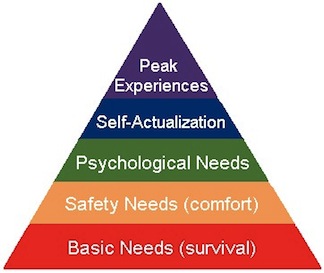 According to this blog post Canadian wireless operator Rogers has simplified the process of gaining access to several of its APIs (Application Programming Interfaces). The carrier has simplified the registration process and expanded the set of support services and resources to include “access to code samples, documentation, tips & tricks, a development sandbox, a larger developer community and the ability to interact with our in-house program managers.”
According to this blog post Canadian wireless operator Rogers has simplified the process of gaining access to several of its APIs (Application Programming Interfaces). The carrier has simplified the registration process and expanded the set of support services and resources to include “access to code samples, documentation, tips & tricks, a development sandbox, a larger developer community and the ability to interact with our in-house program managers.”
The menu of network-based APIs support location-awareness, messaging and billing services. Future additions will include support for MMS, all designed to accelerate the time it takes for third-party application providers to introduce new “cloud based” services over Rogers’ wireless networks.
Opus Research will be issuing a report on the Telephony API in the coming month and one of the primary findings is that third-party application developers have a heirarchy of needs of Maslovian proportions (referring to Abraham Maslow’s “Heirarchy of Needs” depicted below:
Rogers Catalyst addresses what I would characterize as “comfort” needs by providing documentation, sample code and access to a community of other developers and support personnel. However, it will be hard for network operators to fulfill the “basic” needs of developers, which is to overcoming platform fragmentation and gain access to the largest possible audience or subscriber base for their services and also present them with a broad set of Web-based resources as the foundation for their mashups.
As they move up the pyramid, developers move toward psychological fulfillment by trying to reach the largest audience possible. That means they address iPhone, Android and a choice among Rim, Nokia (Symbian) or Windows Phone. A technology partner like Appcelerator enables developers to overcome platform fragmentation by enabling them to write their programs once and have them to run “natively” on multiple mobile and desktop platforms. Through links with PayPal, Appcelerator also makes it easier for developers to get paid for their efforts (which, for many, is first-order or “basic” need).
API aggregator/publishers have an important role to play in terms of providing developers with a rich set of raw material for their applications and services. Companies like Programmable Web or Apigee build resources for developers that enable them to build “mashups” of Web-based services and resources, like Google Maps, eBay auction information, Amazon’s check-out, etc. In this context, a network operators API would just be one of many.
The Rogers Catalyst program is on the right track when it simplifies developer access to APIs at that expose various components of their IT systems. However, as this post shows, these APIs tend to be a small part of an ever-growing set of services that today’s developers invoke in their mashups. The competition can be fierce. AT&T, for instance, has built innovation centers, sponsored contests and a variety of outreach programs in an effort to make its resources core to developer efforts. It is well-advised to focus some of its support efforts on making its APIs will understood to the aggregator/publishers of the world.
Categories: Articles


 NiCE Interactions 2025: Agentic AI, Better Data, and a Whole Lot of Partnership
NiCE Interactions 2025: Agentic AI, Better Data, and a Whole Lot of Partnership  Getting It Right: What AI Agents Actually Mean for Customer Support (Webinar)
Getting It Right: What AI Agents Actually Mean for Customer Support (Webinar)  Beyond the Basics: How AI Is Transforming B2B Sales at TP
Beyond the Basics: How AI Is Transforming B2B Sales at TP  Five9 Launches Agentic CX: Toward AI Agents That Reason and Act
Five9 Launches Agentic CX: Toward AI Agents That Reason and Act